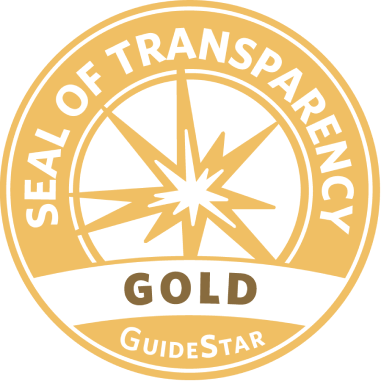In today’s interconnected world, English has emerged as a global language of communication, education, and opportunity. For individuals in regions like Iran and Afghanistan, learning English is more than a linguistic skill—it’s a tool for empowerment. Women, in particular, stand to gain significantly from acquiring English proficiency, as it opens doors to education, employment, and social mobility while fostering independence and self-confidence.
The Omid Foundation, committed to empowering marginalized women, recognizes the transformative potential of English education in these contexts. This article explores why English is essential for empowerment in Iran and Afghanistan and how it contributes to building brighter futures for women and communities.
The Importance of English in a Globalized World
English is widely regarded as the global lingua franca, facilitating communication across cultures, borders, and industries. Its influence extends to various domains, including:
- Education: English is the primary language for accessing international academic resources, online courses, and research.
- Employment: Proficiency in English is a valuable asset in global markets, offering better career opportunities.
- Technology: Much of the internet and digital innovation is rooted in English, making it essential for navigating online platforms and tools.
- Advocacy and Communication: English enables individuals to connect with global networks, share their stories, and amplify their voices.
For women in Iran and Afghanistan, where systemic barriers often limit opportunities, learning English can act as a gateway to independence and empowerment.
Overcoming Barriers to Education
In many parts of Iran and Afghanistan, cultural, social, and economic factors restrict access to education, particularly for women. Learning English can help bridge these gaps by:
- Providing Access to Online Learning:
Platforms like Coursera, edX, and Khan Academy offer free or affordable courses in English, allowing women to pursue higher education from their homes. These resources cover diverse fields, from technology to business, helping women develop skills that can lead to better livelihoods.
- Facilitating International Scholarships:
English proficiency is often a requirement for scholarships to study abroad. By mastering English, women can apply to programs that expand their horizons and provide opportunities unavailable locally.
- Enabling Lifelong Learning:
English unlocks access to books, podcasts, and videos that cover topics beyond formal education, encouraging self-directed learning.
In regions where traditional educational pathways are limited, English becomes a powerful tool for self-empowerment.
Economic Empowerment Through English
Economic independence is a critical aspect of empowerment. English proficiency can significantly enhance women’s earning potential and career prospects in the following ways:
- Remote Work Opportunities:
The global rise of remote work has created demand for professionals fluent in English. Women in Iran and Afghanistan can work as virtual assistants, freelancers, or online tutors, earning an income without leaving their homes.
- Tourism and Hospitality:
In regions with cultural heritage sites, English opens doors to careers in tourism. Women can work as tour guides, hotel staff, or entrepreneurs catering to international visitors.
- Entrepreneurship:
English helps women start and manage businesses by providing access to global markets, suppliers, and clients. Platforms like Etsy or Amazon enable women to sell handmade crafts or products to an international audience.
- Corporate Roles:
Companies looking to expand internationally often prioritize candidates with English skills. Women with such qualifications can secure roles in marketing, administration, or customer service.
By creating pathways to financial independence, English enables women to break free from traditional constraints and contribute to their families and communities.
Social and Cultural Empowerment
Learning English is not just about economic benefits—it also fosters personal growth and social empowerment.
- Building Confidence:
Mastering a new language instills a sense of accomplishment and self-belief. Women who learn English often gain the confidence to assert themselves in various aspects of life.
- Expanding Horizons:
English allows women to engage with diverse perspectives through literature, media, and online communities. This exposure broadens their understanding of the world and encourages critical thinking.
- Connecting Across Cultures:
English enables women to interact with people from different backgrounds, fostering cultural exchange and mutual respect. It also helps them share their own stories and advocate for issues affecting their communities.
- Reducing Isolation:
In regions where women face restrictions on mobility or social interaction, English provides a way to connect with others globally, reducing feelings of isolation.
Through these social and cultural benefits, English helps women redefine their roles and envision new possibilities for themselves.
Challenges to Learning English
Despite its potential, learning English is not without challenges in Iran and Afghanistan. Common obstacles include:
- Lack of Resources:
Many women lack access to English textbooks, qualified teachers, or language-learning technology.
- Cultural Resistance:
In conservative communities, women pursuing education, particularly in a foreign language, may face opposition from family or society.
- Economic Barriers:
The cost of private language courses or online subscriptions can be prohibitive for women in low-income households.
- Limited Opportunities for Practice:
Without access to English-speaking environments, learners may struggle to develop conversational skills.
To address these challenges, organizations like the Omid Foundation play a critical role in creating accessible and supportive learning environments.
Omid Foundation’s Role in Empowering Women Through English
At the Omid Foundation, we believe in the transformative power of education. Our programs are designed to provide women with the tools and support they need to learn English and use it to build better futures.
- Free English Classes:
We offer English courses tailored to women’s needs, focusing on practical communication skills for work and daily life.
- Digital Literacy Training:
By teaching women how to use language-learning apps and online resources, we empower them to continue learning independently.
- Culturally Sensitive Curriculum:
Our programs incorporate local contexts, ensuring that English learning feels relevant and accessible.
- Mentorship and Support:
We connect learners with mentors who provide guidance and encouragement, fostering a sense of community and belonging.
Through these initiatives, we aim to ensure that every woman has the opportunity to learn English and use it as a tool for empowerment.
Inspiring Success Stories
The impact of English education is evident in the stories of women who have used it to transform their lives.
Fatemeh’s Story: From Learner to Leader
Fatemeh, a young woman from rural Iran, joined an Omid Foundation English course with no prior experience. Over time, she developed her skills and began teaching English to children in her village. Her efforts not only provided a source of income but also inspired others in her community to value education.
Amina’s Journey: Empowering Others Online
After fleeing conflict in Afghanistan, Amina learned English through online platforms. She now works as a virtual assistant for an international organization, using her income to support her family and fund education programs for refugee children.
These stories highlight the ripple effects of English education, showing how it benefits not only individuals but entire communities.
Conclusion
English is more than a language—it is a catalyst for empowerment. In Iran and Afghanistan, where systemic and cultural barriers often limit women’s opportunities, learning English provides a pathway to education, economic independence, and personal growth.
The Omid Foundation is dedicated to helping women overcome these barriers by offering accessible and culturally sensitive English programs. By investing in language education, we
can empower women to take charge of their lives, support their families, and inspire change in their communities.
Through English, women in Iran and Afghanistan can connect with the world, unlock their potential, and build brighter futures for themselves and the next generation. Together, we can ensure that no woman is left behind in the pursuit of empowerment and opportunity.

